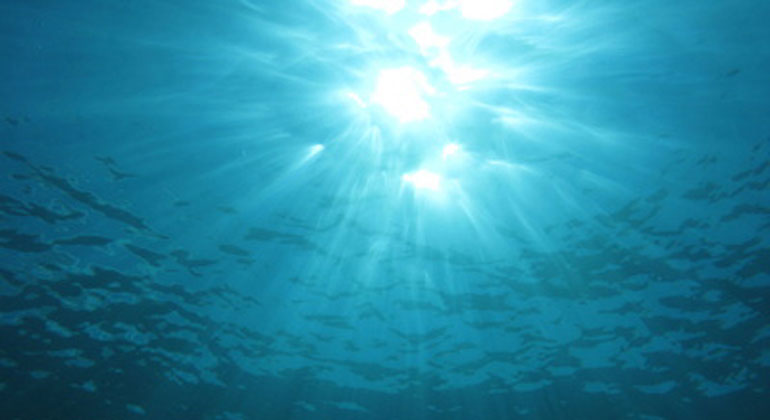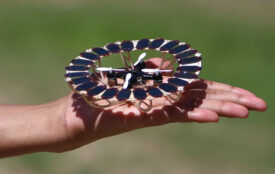BIOACID – Exploring Ocean Change
A new video shows how oceanographers, marine biologists and chemists, economists and social scientists of the BIOACID project investigate impacts of ocean acidification.
From the Arctic to the tropics, ocean acidification changes life in the sea. By absorbing carbon dioxide (CO2) from the atmosphere, the ocean slows down global climate change. But in seawater, the greenhouse gas causes a chemical reaction with far-reaching consequences: carbonic acid is formed, and the pH drops.
Many plants and animals that build their shells or skeletons of calcium carbonate are at serious risk, because they need more energy to maintain growth in more acidic water. Also the development of important food fish can be affected. Organisms that convert carbon dioxide into energy by photosynthesis, however, could benefit. In addition, certain species are able to adapt to new conditions in the long run. The roles in the marine food web are redefined, while other factors such as rising temperatures, loss of oxygen, eutrophication, pollution or overfishing additionally might further influence the effects of ocean acidification.
A new video reveals how members of the the German research network BIOACID examine the effects of acidification on the life and biogeochemical cycles in the ocean – and on all those who depend on it.








